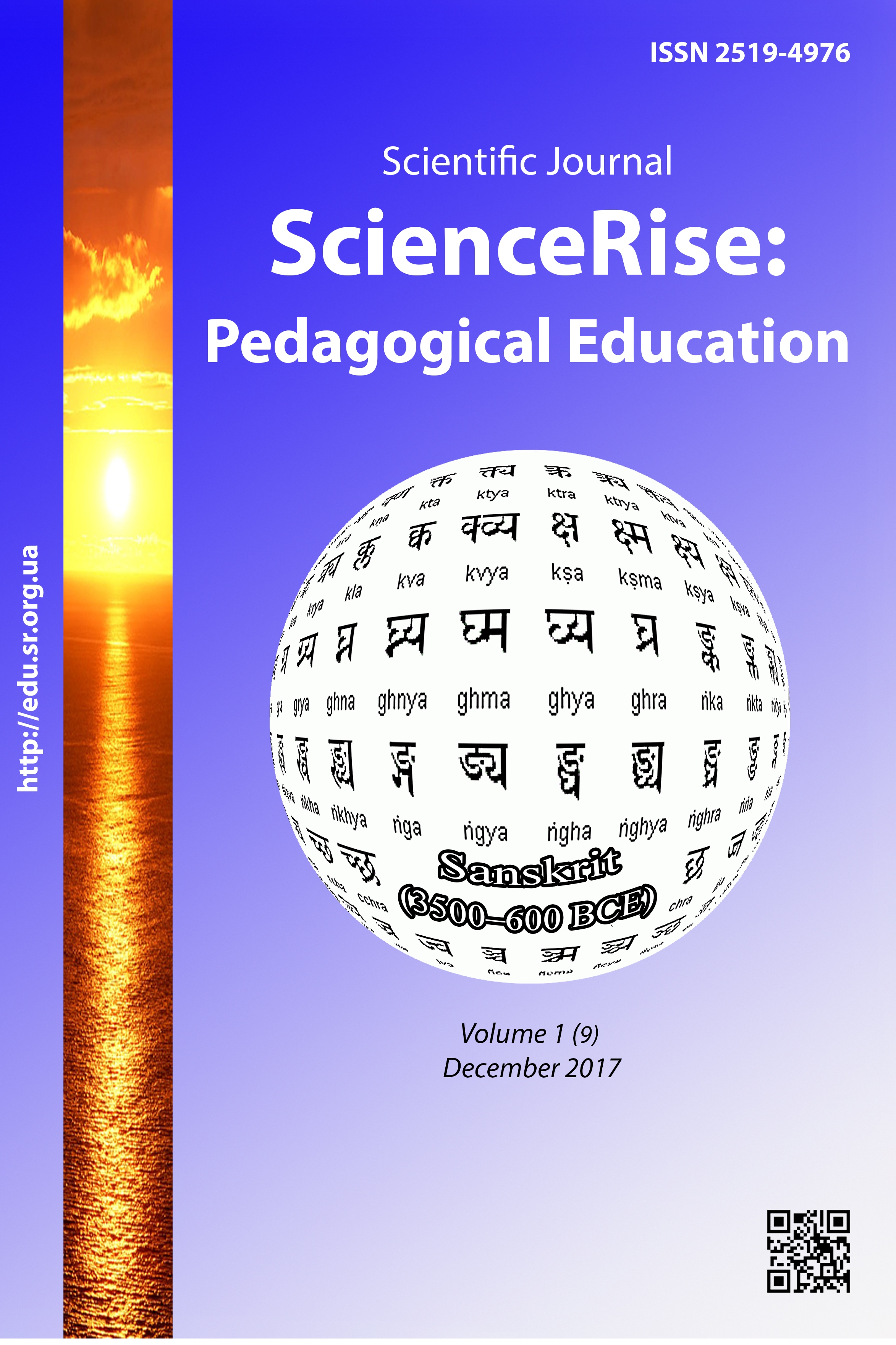The research of theoretical principles of psychological and pedagogical training of professional judges in the system of judicial education
DOI:
https://doi.org/10.15587/2519-4984.2017.91515Keywords:
professional training of judges, professional mastership of judge, psychological-pedagogical training of judgesAbstract
The article studies the essence of theoretical principles of psychological-pedagogical principles of training of professional judges in the system of judicial education; it was proved, that in the context of professional training of judges the notion “pedagogical mastership of judge” is a system-creating function, directed on setting of effective pedagogical interaction within realization of tasks of judicial education. The author paid attention to the fact that since the beginning of formation of the Highest Justice Council the priority direction of its activity is a provision of formation of effective, modern system of professional selection and training of judges, oriented on the real needs of judge staff. However, evaluating the quality of judicial system of the country, it is impossible to get the objective indicator without taking into account the state of existing system of selection and training of judges, and the set system of functioning of these institutions is a node parameter at determination of justice quality. The conceptual principles of psychological-pedagogical training of judges were grounded. The main idea, main positions and psychological-pedagogical strategy of training judges for teaching activity were concretized that provided the phased realization of main conceptual theses
References
- Koncepcija reformuvannja sudovoji systemy Ukrajiny (2014). Asociacija pravnykiv Ukrajiny. Available at: http://uba.ua/ukr/project_ref_sud/
- Rozdili VIII «Pravosuddja» (2016). Konstytucija Ukrajiny, 124. Available at: http://www.president.gov.ua/ua/documents/constitution/konstituciya-ukrayini-rozdil-viii
- Tokarsjka, A. S. (2008). Pravova komunikacija v konteksti postklasychnogho pravorozuminnja. Kyiv, 36.
- Katajeva, E. V. (2016). Jurysdykcija administratyvnykh sudiv Ukrajiny shhodo vyrishennja administratyvnykh sprav. Kyiv, 235.
- Bondarenko, O. F. (2000). Specyfika psykhologhichnogho znannja ta jogho misce v dijaljnosti suddi. Centr suddivs'kyh studij. Available at: http://judges.org.ua/Forum/img/europe/ua.glavred.info/archive/2008/article/seminar5-1.htm
- Kostycjkyj, M. V. (2009). Filosofsjki ta psykhologhichni problemy jurysprudenciji. Chernivci: Ruta, 576.
- Pometun, O. (2005). Formuvannja ghromadjansjkoji kompetentnosti: poghljad z pozyciji suchasnoji pedaghoghichnoji nauky. Visnyk proghram shkiljnykh obminiv, 23, 18–24.
- Rubinshtejn, S. L. (2002). Osnovy obshhej psihologii. Saint Petersburg: Piter, 720.
- Bandurka, A. M., Bocharova, S. P., Zemljanskaja, E. V. (2002). Juridicheskaja psihologija. Kharkiv: Izd-vo nac. un-ta vnutr. del, 596.
- Bedj, V. V. (2007). Jurydychna psykhologhija. Lviv: Novyj Svit-2000, 376.
- Zjazjun, I. A. (2008). Filosofija pedaghoghichnoji diji. Cherkassy: ChNU іm. B. Hmel'nic'kogo, 608.
- Zjazjun, I. A. (Ed.) (2008). Pedaghoghichna majsternistj. Kyiv: Boghdanova A. M., 376.
- Zujeva, L. (2015). Rozvytok pedaghoghichnoji majsternosti profesijnykh suddiv u systemi suddivsjkoji osvity. Slovo Nacionaljnoji shkoly suddiv Ukrajiny, 4 (13), 32–41.
- Semenova, A. (2016). Cinnisnyj vymir dosvidu sub'jektiv pedaghoghichnoji diji. Odessa: Bondarenko M. O., 436.
Downloads
Published
How to Cite
Issue
Section
License
Copyright (c) 2017 Лариса Євгеніївна Зуєва

This work is licensed under a Creative Commons Attribution 4.0 International License.
Our journal abides by the Creative Commons CC BY copyright rights and permissions for open access journals.
Authors, who are published in this journal, agree to the following conditions:
1. The authors reserve the right to authorship of the work and pass the first publication right of this work to the journal under the terms of a Creative Commons CC BY, which allows others to freely distribute the published research with the obligatory reference to the authors of the original work and the first publication of the work in this journal.
2. The authors have the right to conclude separate supplement agreements that relate to non-exclusive work distribution in the form in which it has been published by the journal (for example, to upload the work to the online storage of the journal or publish it as part of a monograph), provided that the reference to the first publication of the work in this journal is included.







